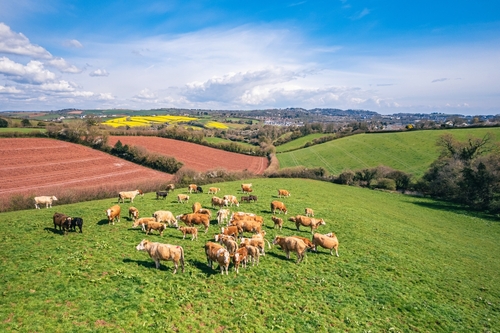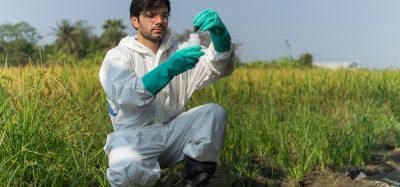UK food policy – let’s discuss
Posted: 18 June 2025 | Dr Clive Black | No comments yet
There is no time to waste in turning the tide on the UK’s failing food system, as Dr Clive Black, former Head of Food Policy at the NFU, asserts in his ongoing call for a Minister for the Food System.


The deservedly applauded Baroness Batters, ‘Minette’ of NFU fame, is courageously seeking to better the strategic prospects of the UK food system, centred upon farming, within the DEFRA construct. Her work warrants support and while a formidable task, it is hoped that a conversation emerges that facilitates positive outcomes, rather than another dust-collecting report.
Why the UK needs a Minister for the Food System
UK food policy is an enormous subject; its ubiquity is both a challenge and an opportunity. The challenge derives from the UK’s siloed approach to government, which makes the food system difficult to work – to be clear it has not and does not work. Hence, as a starting point, my call for a Minister for the Food System, who sits in Cabinet, reports to the Prime Minister and coordinates policy with authority; the same could be said, in some respects, for the environment and sustainability agenda too. The key point here is that a new Food Ministry is not necessary, albeit I have been on record elsewhere as seeing merit in disbanding DEFRA due to its cultural and capability failures.
The UK’s food system is the largest sector in these Isles – yet it has been mindbogglingly neglected by political leaders
That Minister should also be the driving force behind the UK food system featuring as a key lever of British industrial policy, as stated in May 2025 by Tim Smith, Chair of Cranswick, among the other hats that he wears. Despite being the largest sector in these Isles, for incomprehensible reasons it has continually lacked any buy-in or support from successive political leaders. Such thinking is mindbogglingly stupid and self-penalising and must be remedied. As with AI, advanced manufacturing, life sciences and the like, the elemental nature of food should make it a central component of such thinking around the future of the British economy.
Not everything can be fixed and improved at once and so a sense of priority is essential when it comes to food policy. For me, beyond someone authoritative and accountable, that starts with the term that the UK Government and, bizarrely, DEFRA gives lip service to: ‘security of supply’. This necessitates a focus upon domestic production allied to an awareness of where in the world the balance of our foodstuffs should come from.


Calls for a joined-up food strategy include rethinking the role of UK livestock and securing long-term sustainability for sectors like dairy and beef. Credit Shutterstock
Improving self-sufficiency and food security in Britain
In terms of food security, the starting point should not be that c40-45 percent self-sufficiency in Great Britain, c55-60 percent at a UK level (which includes Northern Ireland), is a good or healthy place to be at. Quite what is the right level – balancing many factors such as animal welfare, data, energy, finance, human capital, land use and sustainability – is a matter for analysis and debate, but an ambition for c70 percent-plus would be a starting point to get tongues wagging to 2050. That could be an amazing opportunity.
An ambition for 70 percent-plus self-sufficiency would be a starting point to get tongues wagging to 2050.
Within this context, from a supply perspective, a lot can start to fall into place. In many respects we are considering inputs, factors of production and outputs, but today within the context of a revolution in data analytics, generative AI, genetics, robotics and evolving production methods such as vertical farming, the question is could and should the UK produce arable crops in mass-market vertical conditions by 2050?
Supply-side thinking for a Minister of the Food System could therefore evolve from an ambition to build self-sufficiency to considering what we should produce, how we produce it, including what inputs and where. Ultimately, some sectoral and end-to-end thinking will be needed to appropriately drill down into how the UK can become profitably more self-sufficient, the profit needed to fund ongoing improvement in everything from apples to wheat, dairy to pig meat, flowers to flour and from farm to fork. And that includes considering the location of said fork, which includes the institutional market, owned by Government, local and national.
Building the foundations of a resilient UK food system
However, above the product specifics are horizontal matters such as the availability and skill of labour. Look at Andy Haldane’s manifesto for the training and instruction of the next generation in this respect, which when applied to the UK food system could make it a place where highly educated and talented folks who earn well, want to join.
Beyond human capital there is the energy strategy for the UK food system to consider, which appears to have thus far been absent in thinking. Water requirements – so generational (25Y) plans to improve the hydration of animals and crops – and the location of where food is produced comes to mind. Then there is the soil to address, which must start with measurement, as per the Kendall Report in Northern Ireland, and follow with active plans to structurally improve fertility; this in time will solve a lot of sins around the challenges of inputs, which must involve future thinking on fertilisers, feedstuffs, genes, pest control and seeds –– maybe think vertical farming again.
It is time to get moving before Joe Public starts asking why the political classes of 1945–2025 didn’t act on deteriorating food security.
Within this matrix of product and horizontal themes is the thorny, dysfunctional and important matter of planning to enable a step change in self-sufficiency. For anyone wondering why such a priority may be needed, just think, in no particular order, of biosecurity risk, climate variability, pandemics, tariffs and wars of the 2020s, noting that the UK Prime Minister and the Head of NATO have placed the UK on a soft war footing. Planning is a car crash, a motorway pile-up in the UK and must be urgently addressed for the prospects of elevated self-sufficiency.
Conceptually, all of the above is not rocket science, but it does require a lot of thinking. Happily, in the UK we still have an abundance of great minds and world-class institutes that can be moulded into laboratories around the data, engineering, science and technology necessary to build and modernise, nay transform, the prospects of the British food system. It must be centred on security, into which the environment and health agendas can be fed, noting that pre-dispositions within DEFRA towards the managed decline of the UK dairy and livestock sector should be brought out into the open and then firmly kicked into touch. In this respect, it must be stated that a soil strategy alongside the other tools and thinking outlined above can address the questions of producing more food with biodiversity improvements.
There is so much to do, so much good to be achieved, so many benefits for the economy and society, town and country, from a joined-up end-to-end approach to the British food system. But it requires leadership, accountability, responsibility and support. Hence, I come back to where I started: calling for a Minister for the Food System and an industrial strategy. It is time to get moving before Joe Public start asking why the political classes of 1945-2025 didn’t tell us and act on deteriorating food security, never mind the massive benefits that can emerge from UK Food System 4.0.
About the author











